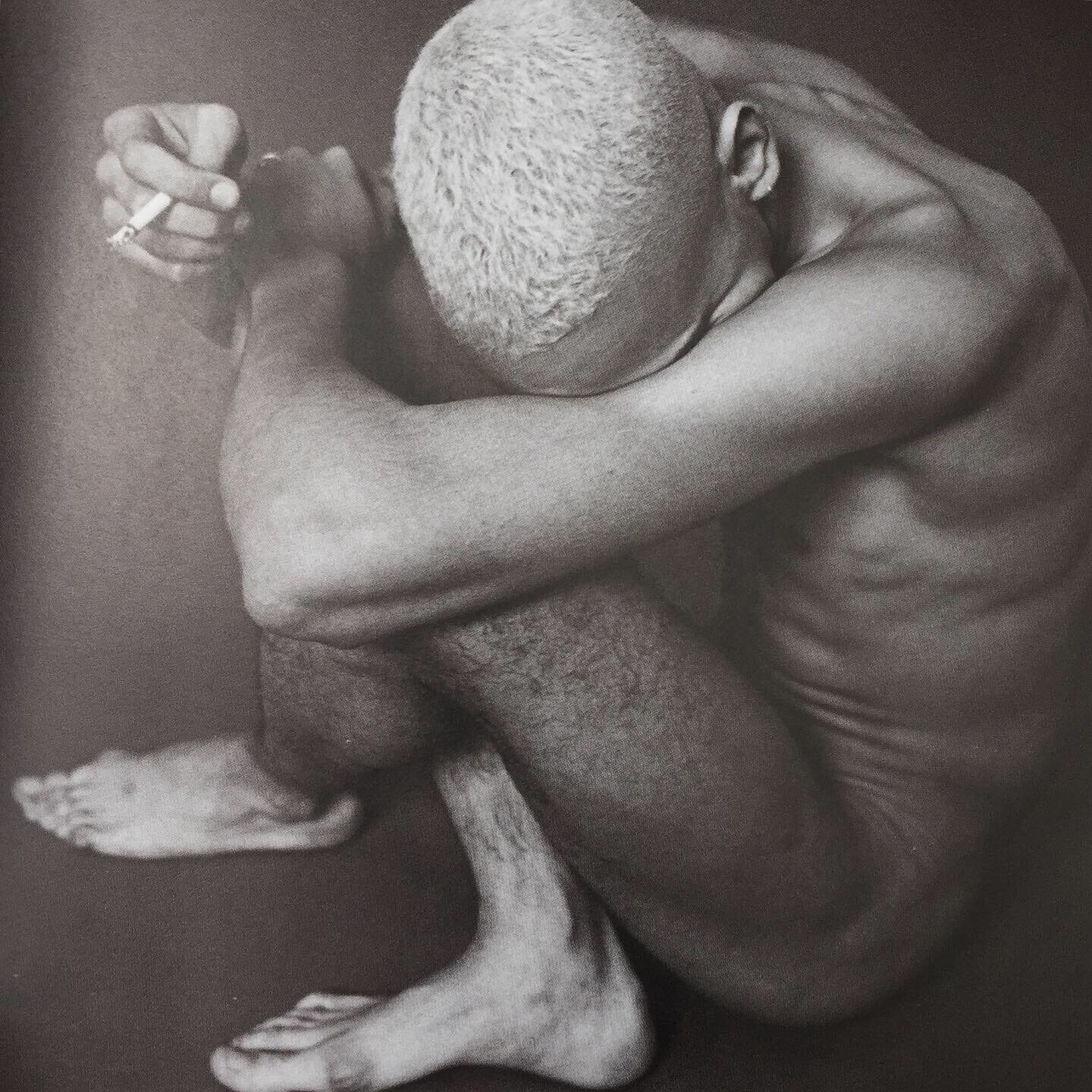Black Male / White Male by Rotimi Fani-Kayode
Rotimi Fani-Kayode described himself an artist of the African diaspora, his art one of erotic fantasy bringing together influences as seemingly disparate as his ancestral Yoruba mysticism with Western religion and the work of Robert Mapplethorpe. He resisted identification with any given ideology, confounding binaries and drawing on and developing feminist critiques of identity as a prescribed captivity: the self is placed in a charged and expansive relational field, art returned to as a site of communion and transformative potential.
Alex Hirst, Fani-Kayode’s partner, in his introduction says of the book ’we may perceive in it a certain tragic freedom in the grand manner, where the pre-modern collides with the post-modern for a few moments of bewildering intimacy’.
Art Historian Kobena Mercer defines the primary strength of Fani-Kayode’s work as his insistence on the proposition that ‘self and Other are always mutually implicated in ties of identification and desire … its emphasis on the constructive hybridity of the postcolonial and disaporic subject.’
Softcover, first edition, very good condition. 1988
Rotimi Fani-Kayode described himself an artist of the African diaspora, his art one of erotic fantasy bringing together influences as seemingly disparate as his ancestral Yoruba mysticism with Western religion and the work of Robert Mapplethorpe. He resisted identification with any given ideology, confounding binaries and drawing on and developing feminist critiques of identity as a prescribed captivity: the self is placed in a charged and expansive relational field, art returned to as a site of communion and transformative potential.
Alex Hirst, Fani-Kayode’s partner, in his introduction says of the book ’we may perceive in it a certain tragic freedom in the grand manner, where the pre-modern collides with the post-modern for a few moments of bewildering intimacy’.
Art Historian Kobena Mercer defines the primary strength of Fani-Kayode’s work as his insistence on the proposition that ‘self and Other are always mutually implicated in ties of identification and desire … its emphasis on the constructive hybridity of the postcolonial and disaporic subject.’
Softcover, first edition, very good condition. 1988
Rotimi Fani-Kayode described himself an artist of the African diaspora, his art one of erotic fantasy bringing together influences as seemingly disparate as his ancestral Yoruba mysticism with Western religion and the work of Robert Mapplethorpe. He resisted identification with any given ideology, confounding binaries and drawing on and developing feminist critiques of identity as a prescribed captivity: the self is placed in a charged and expansive relational field, art returned to as a site of communion and transformative potential.
Alex Hirst, Fani-Kayode’s partner, in his introduction says of the book ’we may perceive in it a certain tragic freedom in the grand manner, where the pre-modern collides with the post-modern for a few moments of bewildering intimacy’.
Art Historian Kobena Mercer defines the primary strength of Fani-Kayode’s work as his insistence on the proposition that ‘self and Other are always mutually implicated in ties of identification and desire … its emphasis on the constructive hybridity of the postcolonial and disaporic subject.’
Softcover, first edition, very good condition. 1988









